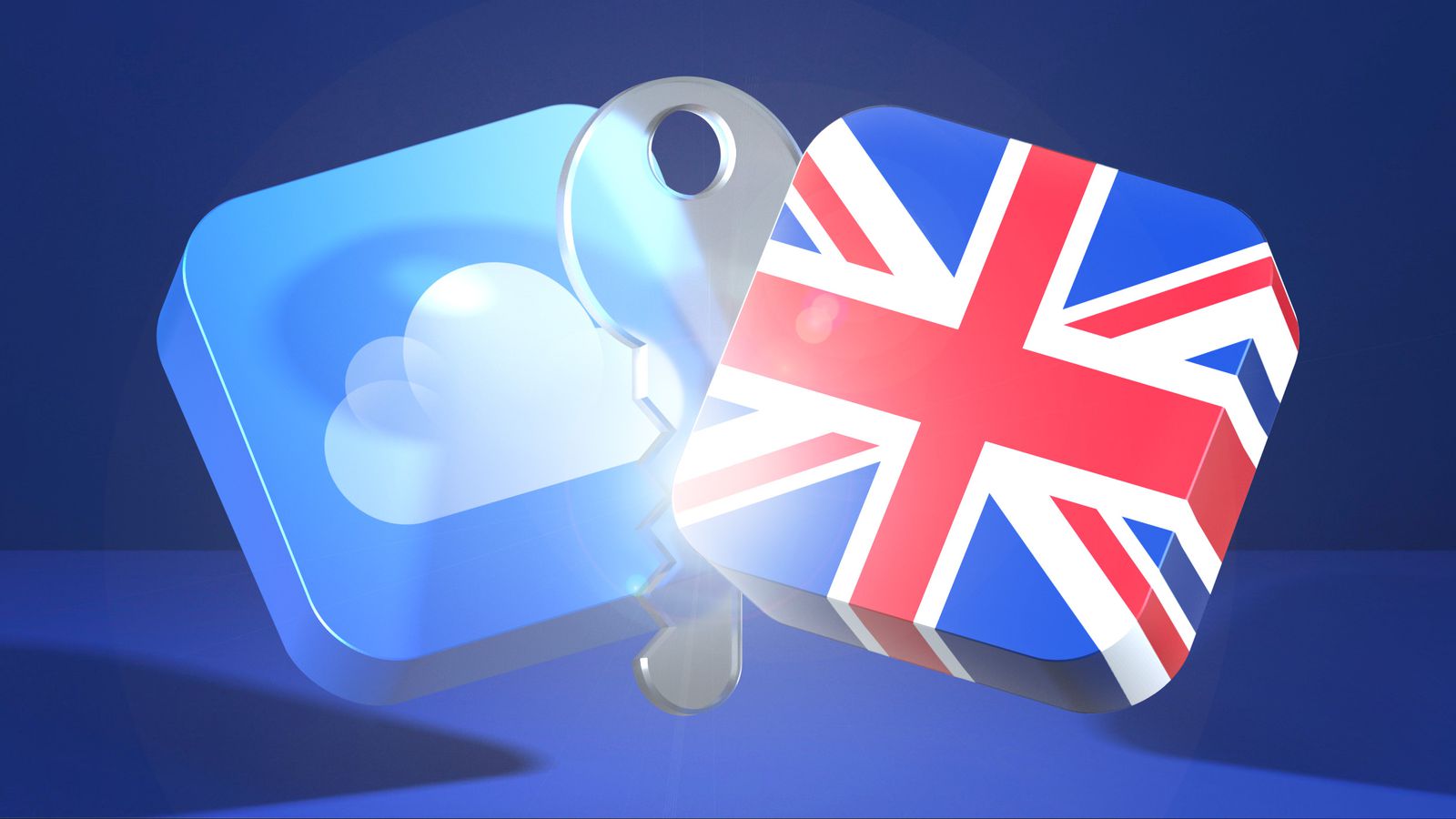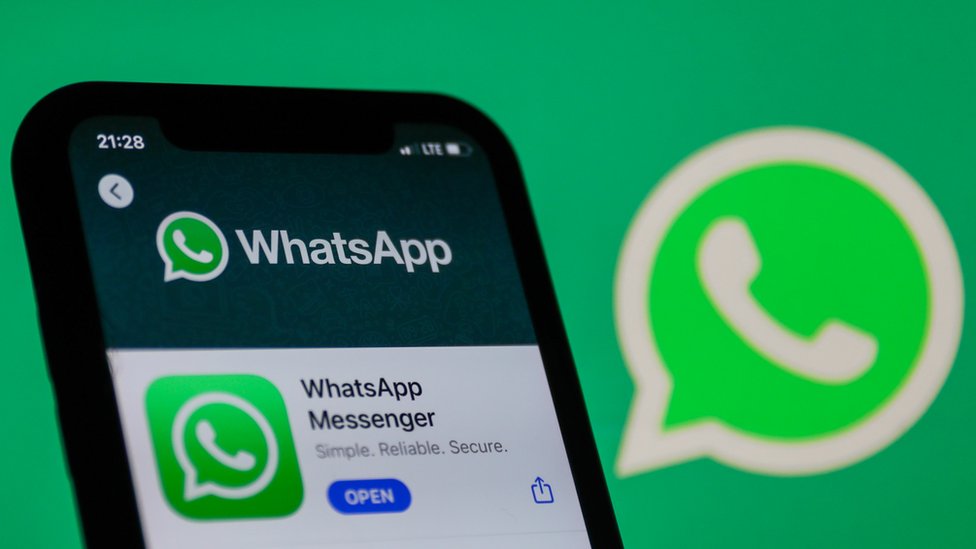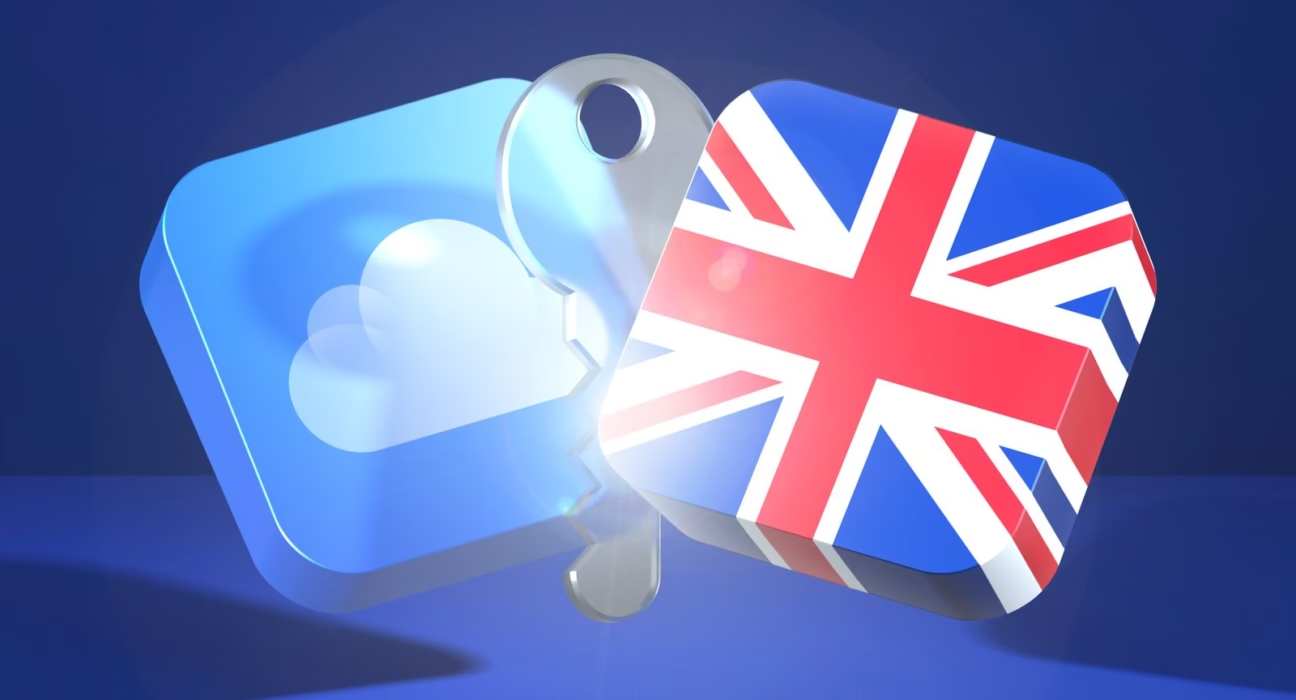WhatsApp UK Government Data Access Legal Battle: Privacy, Encryption, and the Dangerous Precedent
Estimated reading time: 9 minutes
Key Takeaways
-
- The WhatsApp UK government data access legal battle is a major clash over user privacy and state surveillance.
-
- The UK Home Office used *Technical Capability Notices* (TCNs) to demand access to encrypted data from companies like WhatsApp and Apple.
-
- Both WhatsApp and Apple argue that complying would require them to create “backdoors,” severely weakening security for global users.
-
- WhatsApp is formally seeking to join Apple’s ongoing Apple legal challenge UK user data demands, submitting evidence to the Investigatory Powers Tribunal.
-
- Tech companies and privacy advocates warn that granting the government such powers sets a *dangerous global precedent* for digital surveillance.
-
- The legal challenge is closely linked to concerns about the impact of UK online safety bill on privacy and encryption.
- The outcome, decided by the Investigatory Powers Tribunal, will have significant international implications for privacy, security, and how encrypted services operate.
Table of contents
Introduction: A Clash Over Digital Rights
At the heart of a burgeoning legal storm in the UK lies the WhatsApp UK government data access legal battle. This isn’t just another tech-versus-government dispute; it’s a major legal confrontation between giants like WhatsApp and Apple and the UK Government, with profound implications for the future of user privacy and digital rights. Both companies found themselves facing orders from the UK Home Office, demanding access to encrypted user data. This case transcends the borders of the United Kingdom, holding significance not only for UK users but for its potential to set global precedents for digital privacy and government surveillance powers.

The core issue revolves around government demands made via *Technical Capability Notices* (TCNs), compelling tech firms to potentially compromise the very encryption that protects user communications. Apple is already engaged in a legal challenge against such orders, and WhatsApp has now formally stepped forward, seeking to join this Apple legal challenge UK user data, signalling a united front from major tech players. This battle highlights the increasing tension between national security objectives and the fundamental right to private, secure digital communication. The outcome is eagerly watched by governments, tech companies, privacy advocates, and users worldwide, as it could redefine the balance of power in the digital realm.

The Core Dispute: Understanding the UK Government’s Demands
The mechanism through which the UK government is seeking to gain access to encrypted data is a *Technical Capability Notice* (TCN), issued under the Investigatory Powers Act (often dubbed the “Snooper’s Charter”). A TCN is a powerful legal order originating from the Home Office, designed to require telecommunications operators and postal service providers (interpreted broadly to include online service providers like WhatsApp) to provide law enforcement and intelligence agencies with the *capability* to access data, including encrypted messages. Crucially, these orders are not necessarily confined to UK residents; they can, in theory, apply to companies serving users outside the UK if those companies fall under the Act’s jurisdiction and have the capability to comply.

The interpretation and implementation of these TCNs are where the conflict arises in the WhatsApp UK government data access legal battle. Apple and WhatsApp contend that fulfilling the government’s demands, as articulated in the TCNs they received, would necessitate building “backdoors” or finding ways to bypass their own encryption protocols. They argue that this would fundamentally undermine the security they provide to *millions* of users globally. This isn’t just about providing data on a single suspect; it’s about creating a capability that, once built, could be exploited by malicious actors worldwide.
WhatsApp’s decision to formally seek intervention and join Apple’s existing legal challenge before the Investigatory Powers Tribunal underscores the severity with which they view these demands. By submitting evidence and requesting formal party status, WhatsApp is not only supporting Apple’s position but is also asserting its own right to challenge orders that it believes would compromise its service’s core security features. This move solidifies the tech industry’s resistance to mandates that they argue force them to choose between providing secure services and operating within certain jurisdictions. The Apple legal challenge UK user data is therefore becoming a focal point for the broader debate on state access to private digital communications.
The Encryption Challenge: Why “Backdoors” Are Contentious
The technical lynchpin of this dispute is the WhatsApp encryption debate UK. WhatsApp, like many modern messaging services, employs *end-to-end encryption* (E2EE). This sophisticated cryptographic method ensures that messages are scrambled on the sender’s device and can only be decrypted and read by the intended recipient’s device. The key concept here is that the service provider itself – WhatsApp in this case – does not hold the keys to decrypt the messages. This makes E2EE incredibly secure, protecting conversations from interception by hackers, corporations, and even governments.

The UK government’s demands, as interpreted by Apple and WhatsApp, would require them to build a mechanism – essentially a “backdoor” or a “golden key” – that would allow authorised parties (like law enforcement) to bypass this encryption and access user data. The tech companies’ counter-argument is unequivocal and technically grounded: there is no way to build such a backdoor *only* for good guys. Any vulnerability or bypass mechanism built into the system, regardless of its intended use, could potentially be discovered and exploited by malicious actors – sophisticated hackers, criminal organizations, or hostile state-sponsored groups. Building a backdoor for one government effectively weakens the security for *all* users globally, making their private communications vulnerable.
Both companies have taken actions to underscore their commitment to encryption and their stance against backdoors. WhatsApp’s CEO, Will Cathcart, has publicly stated the company’s firm position, emphasizing that WhatsApp “would challenge any law or government request that seeks to weaken the encryption of our services.” This reflects a core principle for the company. Similarly, Apple previously demonstrated its commitment by withdrawing its *Advanced Data Protection* (ADP) feature for UK users when faced with demands it felt would compromise the security of that feature, rather than comply and weaken the protection. These actions highlight the deep-seated technical and philosophical opposition within these companies to mandates that they believe necessitate compromising fundamental security principles. WhatsApp has also recently introduced ‘secret codes’ to further enhance locked chat privacy, demonstrating their continued focus on user security features.
Arguments and Concerns: Balancing Security and Privacy
The WhatsApp UK government data access legal battle pits the government’s claims of public safety against the tech companies’ and privacy advocates’ arguments for fundamental rights and global digital security.

Arguments against the UK government’s position centre on several critical points:
-
-
Setting a Dangerous Precedent: Perhaps the most significant concern is that a ruling in favour of the UK government would establish a “dangerous precedent government data access demands” globally. If the UK can compel companies to weaken encryption, it could empower other governments, including those with poor human rights records, to demand similar access. This could lead to a fragmented and less secure global internet, where user privacy is at the mercy of national governments.
-
-
-
Increased Risk: Weakening encryption doesn’t just facilitate government access; it inherently creates vulnerabilities. By design, a backdoor intended for law enforcement can become a target for malicious actors. This exposes *everyone* using the service to greater risk from hackers, cybercriminals, and foreign governments interested in surveillance or data theft. It could exacerbate explosive cybersecurity threats worldwide.
-
-
Jeopardizing Fundamental Rights: Civil liberties and human rights groups, such as Privacy International and Liberty, have consistently voiced concerns that mandates to undermine encryption threaten fundamental rights. Secure and private communication is essential not only for personal privacy but also for journalists, activists, whistleblowers, and vulnerable populations who rely on it for safety and freedom of expression. Demanding backdoors erodes this critical protection.
The UK Home Office, however, maintains that these concerns are overstated. Their counter-argument is that privacy and security are not mutually exclusive and *can* coexist. They assert that the powers under the Investigatory Powers Act, including TCNs, are subject to strict safeguards, oversight, and proportionality requirements. They claim these powers are used judiciously, only in exceptional cases involving serious crimes such as terrorism, child sexual abuse, and organised crime, where access to communications is deemed necessary to protect public safety and national security. They argue that denying law enforcement access in these critical cases would severely hinder their ability to investigate and prevent serious harm. The Home Office position is that tech companies have a responsibility to cooperate with lawful access requests, and that providing a mechanism for targeted access is possible without creating a universally exploitable weakness. The legal battle in the IPT will scrutinize these competing claims in detail.
Context of the UK Online Safety Bill
This specific legal challenge over data access orders from the Home Office is inextricably linked to the broader legislative framework in the UK, particularly the *Online Safety Bill* (now the Online Safety Act). While the Act’s primary stated aim is to hold tech platforms accountable for harmful content circulating on their services, critics argue that certain provisions indirectly bolster the government’s ability to demand access to encrypted communications, thereby impacting privacy.

One of the main concerns is the power granted to the regulator, Ofcom, to require platforms to use accredited technology to identify and remove illegal content, including in encrypted environments. While the government insists this doesn’t mandate the breaking of end-to-end encryption, opponents argue that any technology capable of scanning messages for harmful content before they reach the recipient effectively undermines the principle of E2EE. If a message can be scanned or accessed by the platform, it is no longer truly end-to-end encrypted. This potential requirement to scan private messages is seen by companies like WhatsApp and Apple, as well as privacy advocates, as a demand to compromise their security architecture.
Therefore, the legal battle over Technical Capability Notices and the demands for access to encrypted data are seen as a more immediate manifestation of the same governmental desire for visibility into private digital communications that is also reflected in the Online Safety Act. Critics contend that both mechanisms represent a significant impact of UK online safety bill on privacy. They argue that the cumulative effect of these legal instruments is to create a landscape where robust, private communication is increasingly under threat, compelling companies to potentially weaken the security that protects millions of users globally. The outcome of the IPT case could therefore influence the interpretation and future implementation of provisions within the Online Safety Act related to scanning and accessing content on encrypted platforms.
Legal Standing and Progress
The battleground for this significant dispute is the UK’s Investigatory Powers Tribunal (IPT). This specialist judicial body is responsible for hearing complaints about the conduct of the UK’s intelligence services and law enforcement agencies, specifically regarding the use of their intrusive powers, such as surveillance and interception of communications. It is designed to provide an independent check on governmental surveillance activities.

The challenge was originally brought before the IPT by Apple, which received Technical Capability Notices related to accessing encrypted data. Apple was subsequently joined in its challenge by prominent privacy and civil liberties organizations, including Privacy International and Liberty, underscoring the human rights implications of the case. Now, WhatsApp is formally seeking the right to intervene and become a full party to these proceedings. This isn’t merely offering an opinion; it involves submitting detailed evidence, legal arguments, and having the ability to question the government’s claims and evidence. WhatsApp’s move signifies the critical importance it places on this legal challenge, viewing it as a direct threat to its service’s integrity.
A noteworthy development in the proceedings is the court’s decision that hearings should not be held entirely in secret, despite the sensitive nature of discussing government surveillance powers and technical capabilities. While some aspects may necessarily remain confidential, the IPT acknowledged the substantial public interest in the case, particularly concerning the fundamental rights to privacy and freedom of expression. This transparency is crucial for public understanding and trust.
The key legal points being argued before the IPT are multifaceted:
-
-
**Lawfulness and Proportionality of TCNs:** Are the government’s Technical Capability Notices, which demand access to encrypted data, lawful under UK law and the European Convention on Human Rights? Are the demands proportional to the stated aims of preventing crime and protecting national security, considering the potential impact on the privacy and security of potentially millions of users? The tech companies argue they are neither lawful nor proportional, particularly when they necessitate weakening security measures.
-
-
**Requirement to Weaken Encryption:** Do the TCNs effectively compel tech companies to fundamentally alter their security architectures, specifically by creating backdoors or undermining end-to-end encryption? Apple and WhatsApp maintain that compliance would inevitably require building capabilities that introduce vulnerabilities, putting all users at unacceptable risk. The government disputes this, arguing that companies can comply in ways that allow targeted access without universal compromise, a claim the tech companies argue is technically impossible with true E2EE.
The tribunal’s task is to weigh these complex legal and technical arguments, balancing the state’s asserted need for access to combat serious crime against the rights of individuals to private and secure communications. The outcomes could set significant precedents for the interpretation of the Investigatory Powers Act and shape future interactions between global tech companies and the UK government regarding data access. This legal phase is critical in the ongoing WhatsApp UK government data access legal battle and the broader Apple legal challenge UK user data privacy debate.
Potential Outcomes and Future Implications
The decision of the Investigatory Powers Tribunal in the WhatsApp UK government data access legal battle carries immense weight and could lead to several potential outcomes, each with significant ramifications:
-
-
**Outcome 1: Court finds in favor of Apple and WhatsApp:** If the IPT rules that the Technical Capability Notices, as issued or interpreted, are unlawful or disproportionate, it would be a major victory for the tech companies and privacy advocates. This could force the government to withdraw or significantly amend the TCNs. It could also set a strong judicial precedent in the UK reaffirming the importance of end-to-end encryption and potentially limiting the government’s ability to demand access that requires weakening security features. This would bolster the position of companies seeking to offer strong privacy protections globally.
-
-
**Outcome 2: Court finds in favor of the UK government:** A ruling for the government could compel tech firms to comply with the TCNs as interpreted by the state. This would present Apple and WhatsApp with a difficult choice: either build the required capability (which they argue involves weakening encryption), potentially compromising their global security standards, or face significant penalties for non-compliance. In an extreme scenario, this could even lead companies to consider withdrawing certain features (like E2EE messaging) or even their entire services from the UK market if they deem compliance technically impossible without unacceptable security risks.
The implications of this case extend far beyond the UK’s borders:
-
-
**Global Ripple Effects:** A ruling, particularly one in favour of the UK government, could have significant ripple effects worldwide. Other countries might be emboldened to issue similar demands to global tech companies operating within their jurisdictions. Conversely, a strong ruling for privacy and encryption could strengthen the hand of companies and privacy advocates internationally. The willingness of global tech companies to operate fully in the UK, especially regarding the level of privacy they can offer, could also be impacted.
-
-
-
**Setting a Dangerous Global Precedent:** The most critical concern is the potential for the UK case to establish a “dangerous precedent government data access demands” for other nations, potentially leading to widespread demands for backdoors and a global erosion of user privacy and digital security. It could accelerate a global trend towards weakened digital security and increased state surveillance, severely eroding user privacy and freedom of communication worldwide.
-
-
**Future of Encryption:** The outcome will significantly influence the future landscape for encrypted messaging services. It will shape how they design their systems, how they respond to governmental pressure, and whether they can continue to offer strong, uncompromisable encryption to their global user base. It is closely tied to the broader impact of UK online safety bill on privacy, as both legal avenues seek to increase state visibility into digital communications. The case highlights the ongoing and intense debate between national security interests and the fundamental right to privacy in the digital age.

Conclusion: A Critical Juncture for Digital Privacy
The WhatsApp UK government data access legal battle stands as a critical juncture in the global debate surrounding digital privacy, national security, and the future of encrypted communications. It represents the core tension between the legitimate needs of law enforcement and intelligence agencies to access data in cases of serious crime and the fundamental right of individuals to communicate securely and privately, free from unwarranted surveillance. WhatsApp and Apple, by challenging the UK Home Office’s Technical Capability Notices, are arguing that the government’s demands are not only technically unfeasible without compromising universal security but also disproportionate and potentially unlawful.

The key players are clear: WhatsApp and Apple, supported by privacy advocates, are pushing back against government demands they see as necessitating the creation of dangerous “backdoors.” The UK Government, on the other hand, insists that targeted access is necessary for public safety and can be achieved without undermining overall security, a claim heavily disputed by cryptographers and the tech industry. This conflict, playing out before the Investigatory Powers Tribunal, carries significant weight. The outcome will set crucial precedents for how governments can interact with encrypted messaging services, influencing government surveillance powers and digital rights not just in the UK, but potentially worldwide. The concern that a ruling favoring government access could set a “dangerous precedent government data access demands” globally is a central theme for those opposing the government’s position. As this complex dispute unfolds, involving detailed legal and technical arguments, it will continue to highlight the intricate challenge of finding the right balance between personal privacy, digital security, and public safety in an increasingly connected world. The WhatsApp encryption debate UK is far from settled, and its resolution will shape the digital landscape for years to come.
Frequently Asked Questions
-
-
What is the WhatsApp UK government data access legal battle?
It’s a legal challenge initiated by Apple and now potentially joined by WhatsApp against the UK Home Office. The dispute is over government orders (Technical Capability Notices) demanding that tech companies provide access to encrypted user data, which the companies argue would require weakening their security systems.
-
-
-
What is a Technical Capability Notice (TCN)?
A TCN is a legal order issued under the UK’s Investigatory Powers Act requiring telecommunications or online service providers to build or maintain capabilities that allow government agencies access to data, potentially including encrypted communications.
-
-
-
Why are Apple and WhatsApp opposing the government’s demands?
They argue that complying with the TCNs would force them to create “backdoors” or undermine their end-to-end encryption. They contend that building such access mechanisms would compromise the security of all their global users, making them vulnerable to hackers and other malicious actors.
-
-
-
What is end-to-end encryption (E2EE)?
E2EE is a method of secure communication where data is encrypted on the sender’s device and can only be decrypted on the recipient’s device. Neither the service provider nor any third party can read the content of the messages.
-
-
-
How is this case related to the UK Online Safety Bill?
While distinct, both the TCN dispute and aspects of the Online Safety Bill (particularly concerning scanning for harmful content) reflect the government’s desire for greater visibility into online communications. Critics argue that both pose a threat to robust encryption and user privacy. The impact of UK online safety bill on privacy is a significant concern in this context.
-
-
-
What is the Investigatory Powers Tribunal (IPT)?
The IPT is a UK judicial body that hears complaints about the conduct of intelligence services and law enforcement, including the use of surveillance and interception powers under the Investigatory Powers Act. The legal challenge is being heard before the IPT.
-
-
What are the potential global implications if the UK government wins?
A ruling in favour of the UK government could set a “dangerous precedent government data access demands” for other nations, potentially leading to widespread demands for backdoors and a global erosion of user privacy and digital security. It could also influence whether tech companies continue to offer fully featured, secure services in certain countries.






